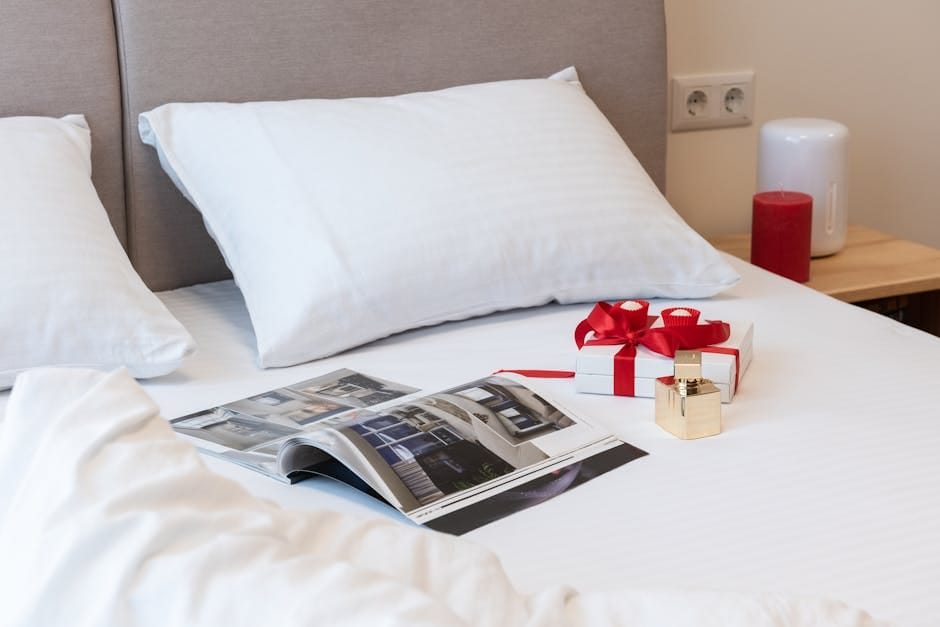The History of Bed and Breakfasts: From Origins to Present
Bed and breakfasts, commonly known as B&Bs, have a storied history that dates back centuries. These charming accommodations have evolved significantly over time, offering travelers a unique and personalized experience. In this comprehensive blog post, we will explore the origins, evolution, and current state of bed and breakfasts, providing you with a deep understanding of this beloved lodging option.
The Origins of Bed and Breakfasts
The concept of providing lodging and meals to travelers is not a new one. It dates back to ancient times when inns and guesthouses were common along trade routes and in bustling cities. However, the term “bed and breakfast” as we know it today has its roots in the early 19th century.
Early Forms of Hospitality
In ancient Greece and Rome, travelers often stayed in private homes or small inns where they were offered a meal and a place to rest. This tradition continued through the Middle Ages, with monasteries and abbeys providing shelter and food to pilgrims. These early forms of hospitality laid the groundwork for what would eventually become the modern B&B.
The Birth of the Modern Bed and Breakfast
The modern concept of a bed and breakfast began to take shape in the 19th century in the United Kingdom. During this time, it was common for travelers to stay in private homes, particularly in rural areas where inns were scarce. Homeowners would offer a spare room and a hearty breakfast in exchange for a small fee. This arrangement allowed travelers to experience local culture and hospitality while providing homeowners with extra income.
The Evolution of Bed and Breakfasts
As travel became more accessible and tourism grew, the bed and breakfast industry began to evolve. Let’s take a closer look at the key developments that have shaped B&Bs into what they are today.
Expansion in the 20th Century
In the early 20th century, the popularity of bed and breakfasts continued to rise, particularly in Europe and North America. During this period, B&Bs became more organized, with many homeowners registering their properties with local tourist boards. This helped to establish standards and ensure a consistent level of quality for guests.
The Role of Regulations and Associations
In the mid-20th century, regulations and associations began to play a significant role in the B&B industry. Organizations such as the Bed and Breakfast Association in the UK and the Professional Association of Innkeepers International (PAII) in the US were established to support B&B owners and promote best practices. These associations provided valuable resources, training, and networking opportunities, helping to professionalize the industry.
The Impact of Technology
The advent of the internet and online booking platforms in the 21st century revolutionized the bed and breakfast industry. Websites like Airbnb, Booking.com, and Expedia made it easier for travelers to find and book B&Bs, leading to a surge in popularity. Technology also enabled B&B owners to market their properties more effectively, reach a global audience, and streamline operations.
The Present State of Bed and Breakfasts
Today, bed and breakfasts are a thriving segment of the hospitality industry. They offer a unique alternative to traditional hotels, providing guests with personalized service, local insights, and a cozy, home-like atmosphere. Let’s explore some key trends and statistics that highlight the current state of B&Bs.
Popularity and Demand
According to a report by the Bed and Breakfast Association, there are approximately 25,000 B&Bs in the United States, generating an estimated $3.4 billion in revenue annually. Similarly, in the UK, there are around 20,000 B&Bs, contributing significantly to the tourism economy. This indicates a strong demand for B&B accommodations, driven by travelers seeking unique and authentic experiences.
Diverse Offerings
Modern bed and breakfasts come in various shapes and sizes, catering to different preferences and budgets. From historic manor houses and charming cottages to contemporary urban lofts, there is a wide range of options available. Many B&Bs also offer themed experiences, such as farm stays, wellness retreats, and eco-friendly accommodations, adding to their appeal.
Emphasis on Sustainability
As sustainability becomes a growing concern for travelers, B&Bs are increasingly adopting eco-friendly practices. Many B&B owners are implementing green initiatives, such as using solar power, sourcing local and organic ingredients for breakfast, and reducing waste through recycling and composting. This commitment to sustainability resonates with environmentally conscious guests and enhances the overall guest experience.
Actionable Tips for Choosing the Perfect Bed and Breakfast
When planning your next getaway, consider staying at a bed and breakfast to enjoy a unique and memorable experience. Here are some actionable tips to help you choose the perfect B&B:
Research and Read Reviews
Start by researching different B&Bs in your desired location. Read reviews on websites like TripAdvisor, Yelp, and Google to get a sense of what previous guests have experienced. Look for consistently positive feedback and pay attention to any recurring themes, such as exceptional hospitality, cleanliness, and delicious breakfasts.
Check Amenities and Services
Make a list of the amenities and services that are important to you. Do you need free Wi-Fi, parking, or pet-friendly accommodations? Ensure that the B&B you choose offers these features. Additionally, consider any special requirements you may have, such as dietary restrictions or accessibility needs, and confirm that the B&B can accommodate them.
Consider Location and Surroundings
Location is a crucial factor when choosing a B&B. Determine whether you prefer to stay in a bustling city center, a quiet rural area, or somewhere in between. Consider the proximity to attractions, restaurants, and public transportation. Also, think about the surroundings and ambiance—do you want a scenic view, a garden, or a historic neighborhood?
Contact the Host
Don’t hesitate to reach out to the B&B host with any questions or concerns. A friendly and responsive host can make a significant difference in your overall experience. Use this opportunity to inquire about check-in and check-out times, breakfast options, and any special packages or discounts that may be available.
Conclusion
The history of bed and breakfasts is a fascinating journey from ancient hospitality practices to the modern, diverse, and thriving industry we see today. B&Bs offer travelers a unique and personalized experience, combining the comforts of home with the charm of local culture. As you plan your next trip, consider staying at a bed and breakfast to enjoy the warmth and hospitality that these accommodations provide.
By understanding the origins, evolution, and current trends of B&Bs, you can make informed decisions and choose the perfect B&B for your needs. Whether you’re seeking a romantic getaway, a family vacation, or a solo adventure, bed and breakfasts offer a delightful and memorable alternative to traditional hotels.
Happy travels!

